I came to the United States from Ecuador at age four. Growing up undocumented, I saw my elders as marvels of nature. They could control their bladders if their shift managers would not let them use the bathroom. They could pick fruit in 120-degree weather while wearing long, black sleeves and bandannas tied around their faces. They could live off tips thrown at them across a countertop and still go to church on Sunday without cursing their God. They reminded me of the creatures I grew up reading about: wood frogs that can live in frigid temperatures, relying on the antifreeze in their veins to stay alive, or sidewinder vipers that move so rapidly upon the Southwestern desert they barely touch its sands. They had carved out a life for themselves in the most inhospitable conditions on earth.
Immigrants like me have come under renewed assault. In September, the Trump administration announced its plans to terminate the Deferred Action for Childhood Arrivals program. Now the fate of some 800,000 Dreamers living in the United States is in limbo on Capitol Hill—a bargaining chip for the construction of a border wall, 10,000 additional Immigration and Customs Enforcement officers, the implementation of an E-Verify program to fire undocumented workers, and stringent measures to bar unaccompanied minors from Central America from entering the United States. But this devil’s bargain is only one of the many realities haunting immigrant communities. Since the inauguration, ICE has been targeting parents and spouses of American citizens, and police officers have arrested schoolchildren on the vague suspicion that they belong to Central American gangs. In February, authorities detained a woman at a courthouse where she had been seeking a protective order against her abuser. And throughout the United States, depression, anxiety, and PTSD are devastating immigrant communities.
This past fall, my father, who has lived in this country for 30 years and paid his taxes and sent his kid to Harvard and Yale was hospitalized for cardiac trouble. The doctor told me that doing manual labor for so many years had made his heart grow bigger. It would be poetic if it couldn’t kill. The life of an immigrant takes a toll.
Over the past five months, photographer Ellen Jacob has sought to bring such stories to light. Her subjects, many of whose names have been changed for this story, have different origins, ages, and languages, but what ties them together is the endless threat of deportation. With photos like these, it can no longer be said that immigrants live in the shadows. Today, as the Trump administration pursues a crackdown on immigrant communities, our stories are everywhere, demonstrating that we are human, not extremophiles or aliens. We are strangers in the land of Egypt who have walked so long, given so much, and are simply asking to be allowed to stay in this country we call home.
GINA Two years ago, in her native El Salvador, Gina saw a gang pull her nephew, then just 14 years old, off a public bus. When she confronted them, they threatened her life. She escaped to the United States and was sent to a detention center in February 2016. Eventually released, she now works as a house cleaner but is required by law to wear an ankle monitor at all times, which she finances, paying $14 each day.
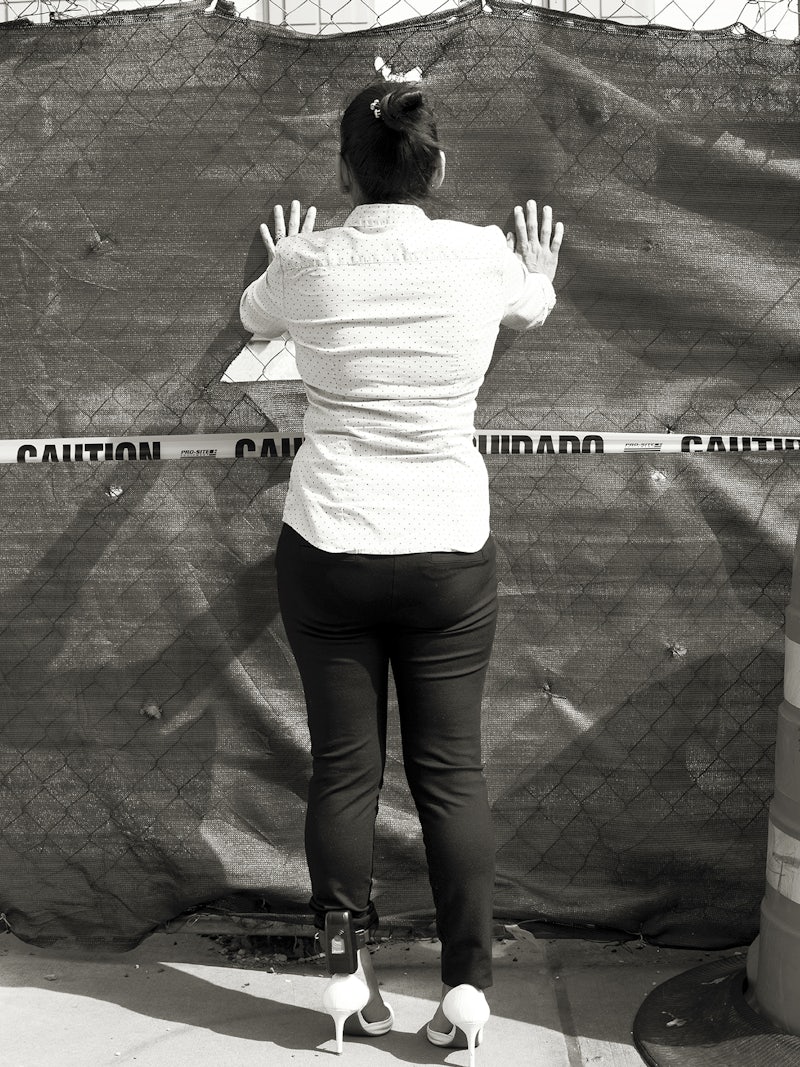
“In detention, I made some girlfriends. They had stories like mine. We would give each other strength. The guards didn’t let us touch each other, but when I left, all my girlfriends ran to me and hugged me. We didn’t care.”
FRANCIS Brought to the United States from Venezuela at age 13, Francis taught herself English, struggling through Harry Potter and Order of the Phoenix the year she arrived. Now 28, she has graduated from Queens College and today, considers herself a poet, inspired by the likes of Robert Frost and Maya Angelou. Her DACA protection is slated to expire in 2019.
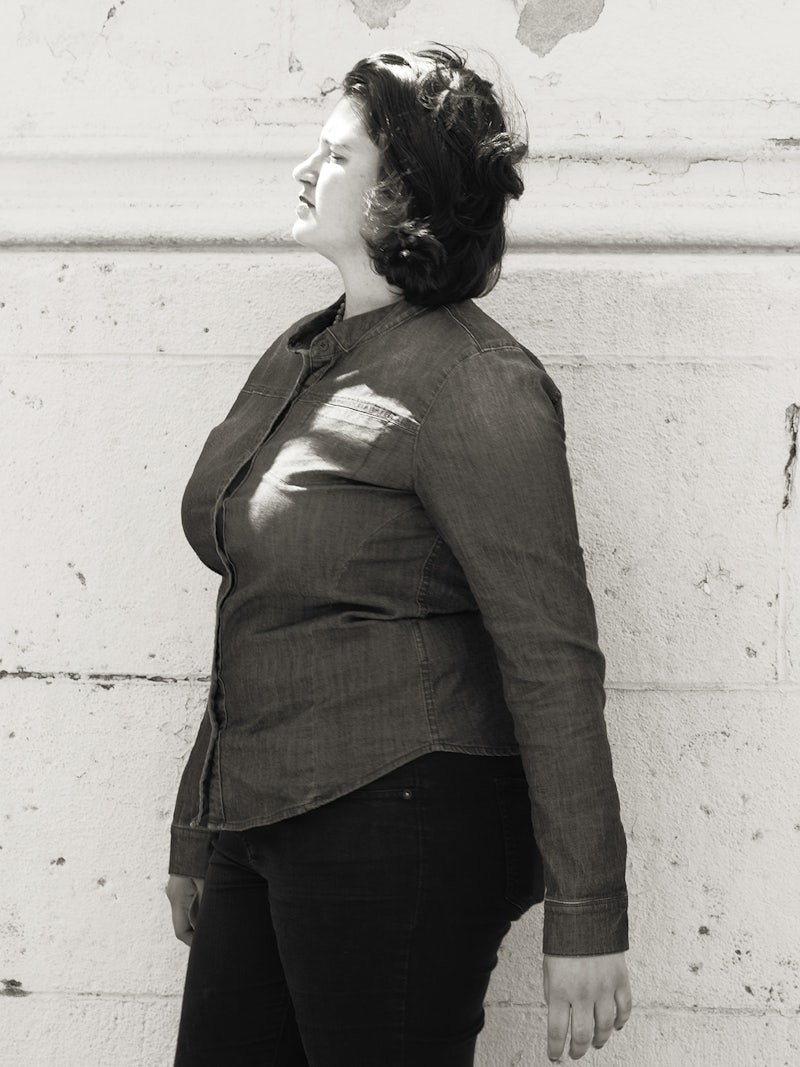
“It’s very easy to talk about the Dreamers because it’s the narrative everyone is familiar with. But it’s also the ‘good immigrant’ story—they are here through no fault of their own, they work hard, go to school. It’s the easiest way to sell a product…. But when we do that, we start criminalizing people who do not fit the stereotype of the good immigrant.”
RAMESH AND JANICE Born in Guyana, Ramesh lived across the street from the junior high school that Janice, an American citizen attended. They met as teenagers and later married. After more than a decade in the United States, he lost his green card, was detained twice, and was released with an ankle monitor in April.
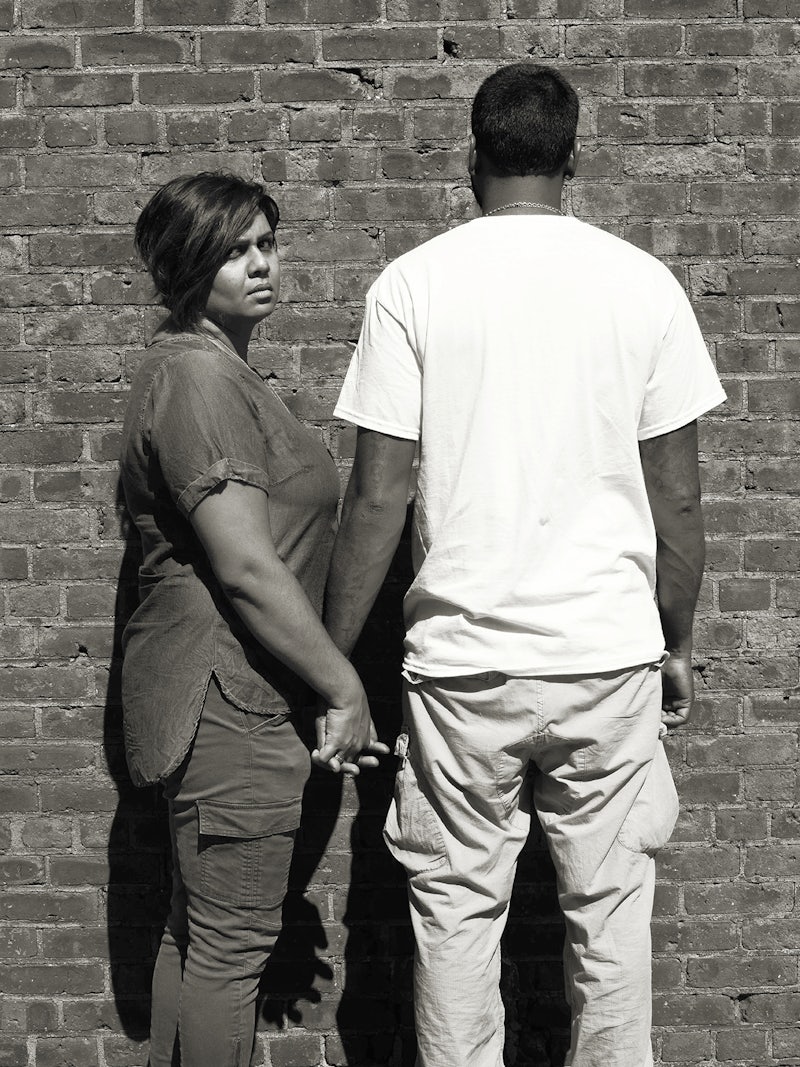
“Ramesh and I spoke almost everyday when he was in detention. He knew he wasn’t going to give up. He said, ‘we are not leaving this country and leave others to go through this. We have to fight for other people going through the same thing.’ He worried about me a lot. All he wanted was ice cream when he came home.”
SEBASTIAN Born in Trinidad, Sebastian served multiple tours between 2006 and 2013 as a Marine in Iraq, where he became addicted to oxycodone prescribed for a back injury. Back in the United States, hooked on the drug, he committed a petty larceny: stealing ice cream. It sparked his deportation proceedings. Now in counseling, he has been clean since January, but still has ptsd, his nights filled with nightmares, cold sweats, and flashbacks to people being blown up.
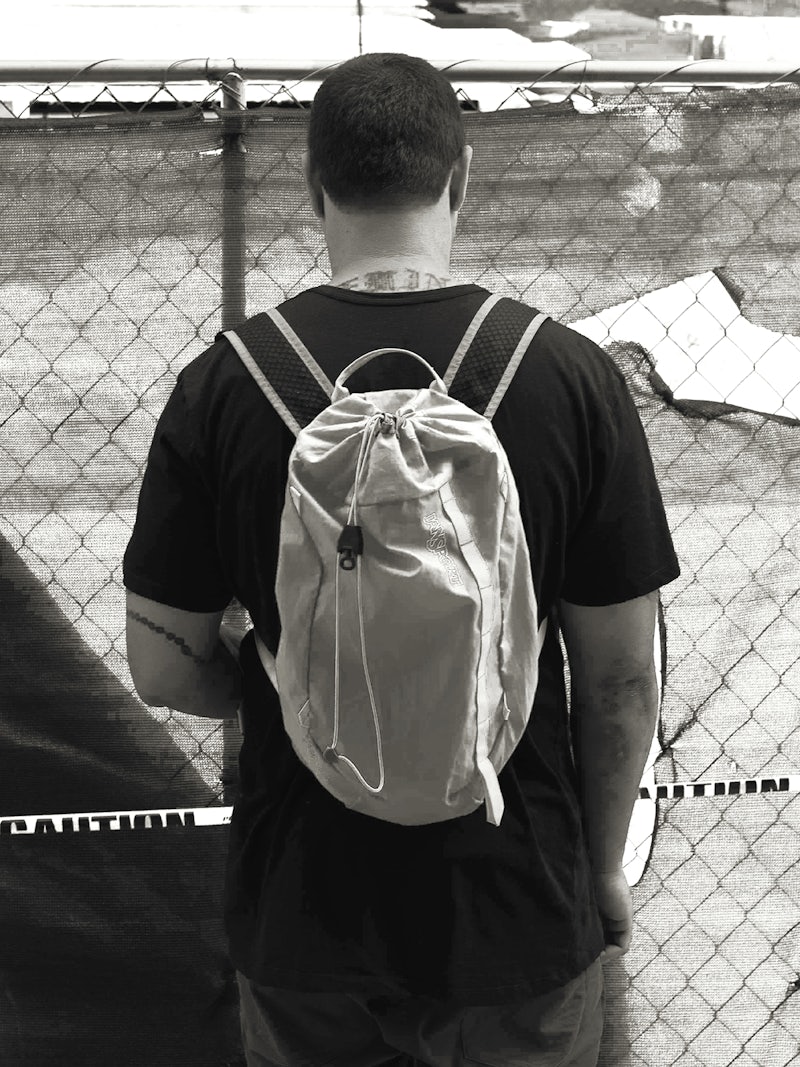
“I joined the Marines because I wanted to be a part of something greater than myself. Most of all, I wanted to protect and defend the American way of life.”
AMANDA After narrowly escaping a kidnapping attempt in Guatemala, Amanda, 33, fled north and in 2004 settled on Long Island, where she kept pet chickens and met with a lawyer who she hoped would help her get asylum. After taking her money, the lawyer told Amanda she didn’t have a valid case, and in August, ICE ordered her to return to Guatemala. Unwilling to abandon her three American children, she has sought refuge in a sanctuary church in Washington Heights.
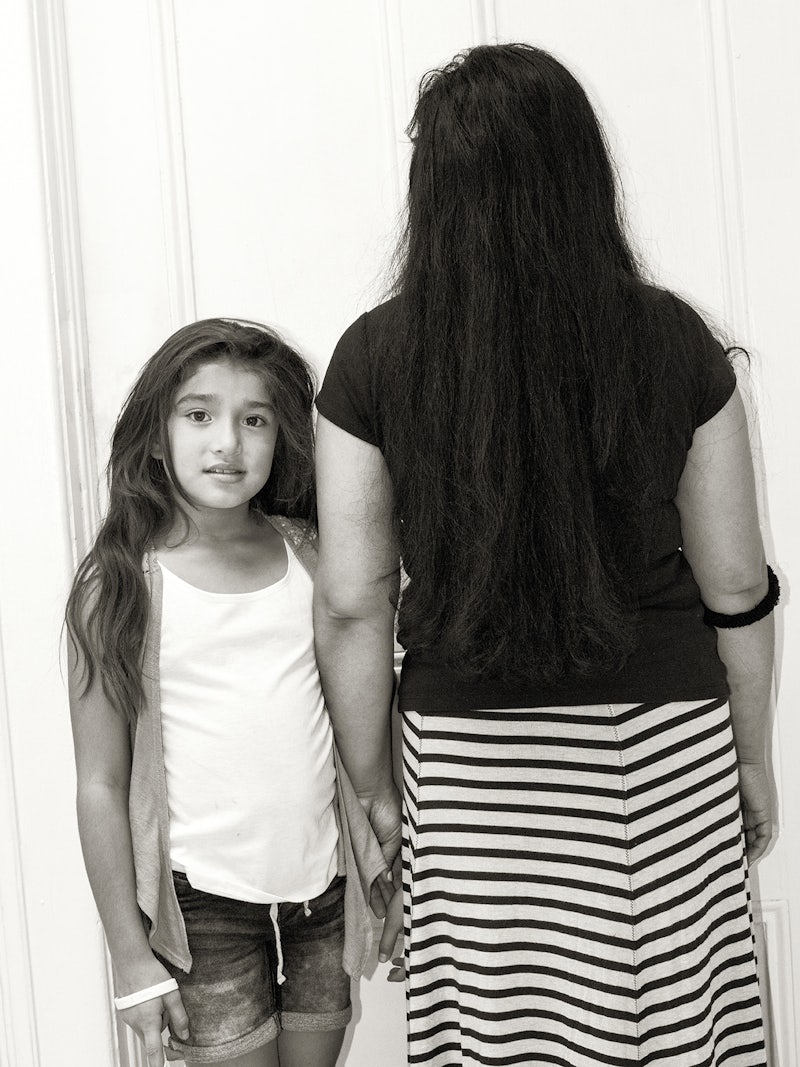
“I feel like I can’t breathe. Sometimes I wish I had wings to fly out of this church. Some people have papers and they don’t value what they have—a small piece of paper that gives them the right to move, to fly.”
JULIAN When Julian was six months old, he left St. Kitts with his parents. After living in Barbados for several years, they settled in the United States when he was nine. Now 51, he may be deported back to St. Kitts, a country he hasn’t seen since infancy. He has studied up on immigration law. Seven years ago, while being held at a detention center, he went to the law library every day, and an African inmate taught him how to write motions.
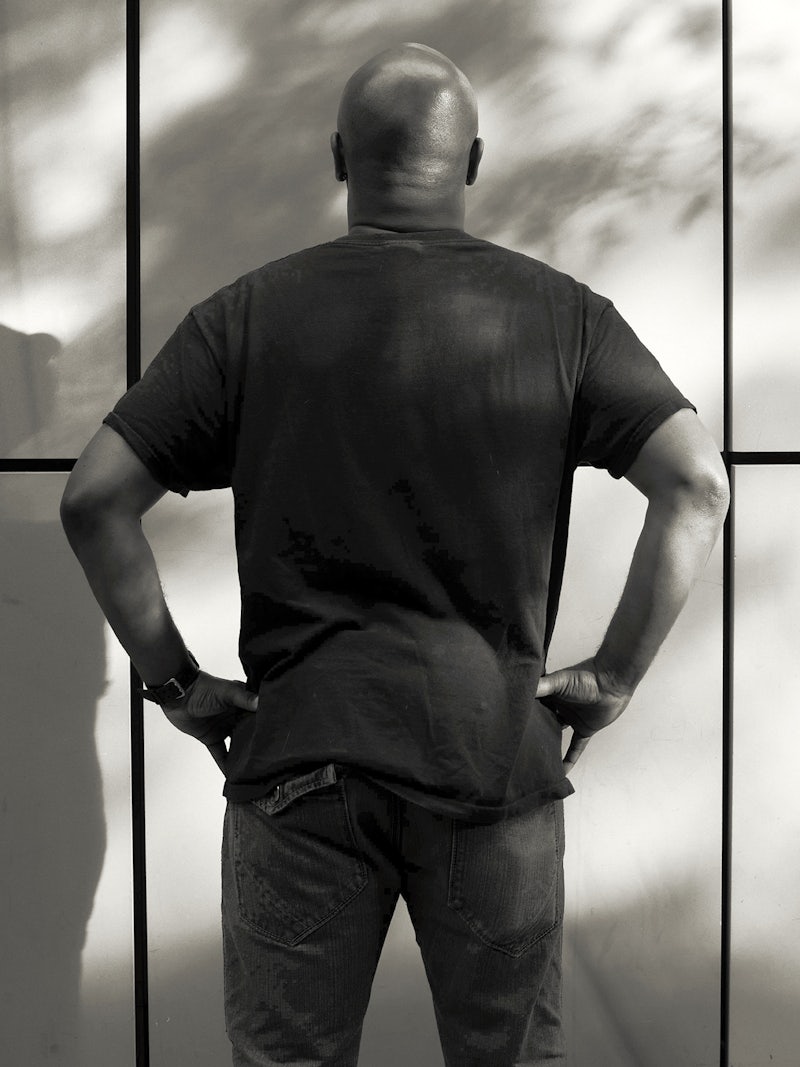
“This African inmate, I was like his secretary for a while and then, when he was released, he gave me all his paperwork and said, ‘You’re the lawyer now.’ I wrote a letter to the warden and asked if we could have computer and printer access in our dorm and he granted it. I started writing motions and helped four guys get released.”
ASHLEY After a gay friend was found dead in his home from a blow to the head, Ashley fled Burkina Faso. A gay woman herself, she too was subject to constant threats in West Africa: She was fired from her job. Strangers threatened to kill her. Her car and home were burned down. After applying for asylum in the United States, she lived without documentation for the past year and only recently received a temporary social security card.
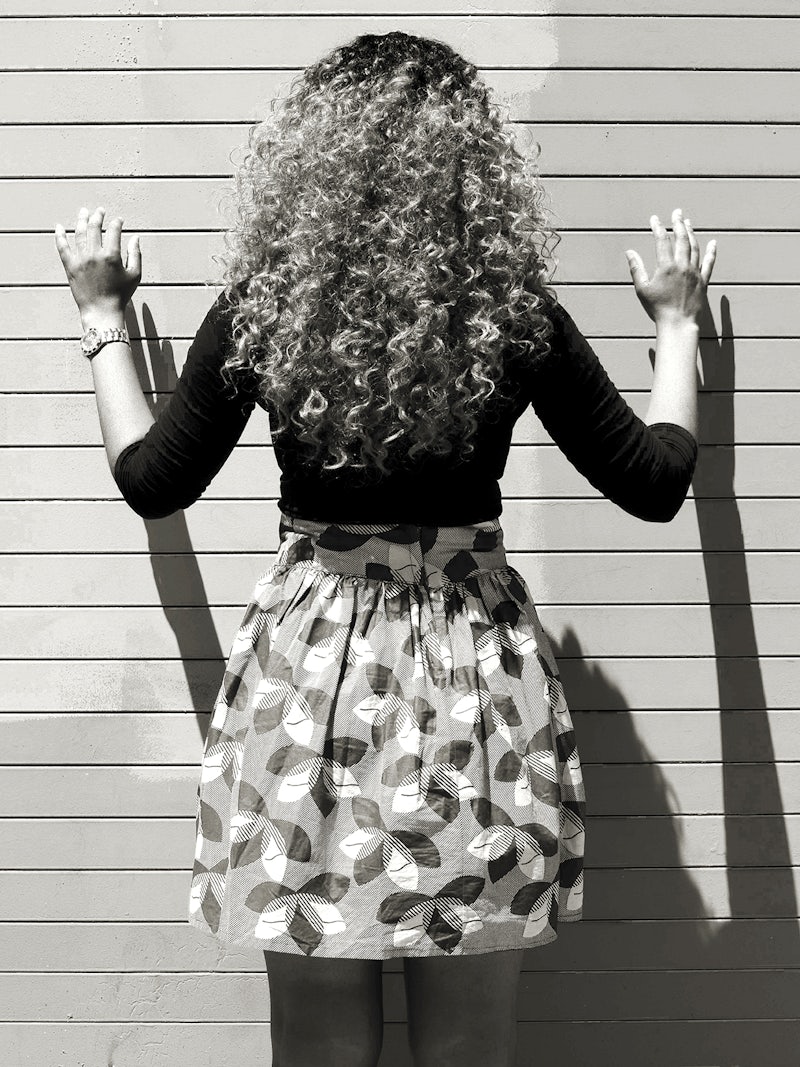
“When I got here, I was scared. I was alone all the time. I didn’t know what people think about being gay here. I was isolated, always crying. But now I feel safer than back home. I would love to get married. I want a long, white dress.”

